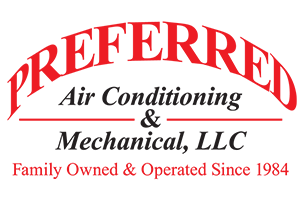A New Air Conditioner? Conduct a Cost Analysis
If you’re shopping for a new HVAC , you’ve probably noticed that the latest air conditioning systems offer more features to enhance comfort and drive efficiency than older models. You may have also noticed the price difference between new standard air conditioning models and HVACs with higher seasonal energy efficiency ratio (SEER) ratings. Home cooling is essential for Palm Beach homeowners, so weigh your decision of first costs and lifetime costs carefully to select the best cooling system for your home and make the most of your investment.
Lifetime Costs vs. First Costs
The initial costs of an HVAC replacement include the dollar number on the price tag and installation costs. You’ll of course want to take advantage of any incentives, rebates and specials to reduce the first costs of the cooling system you select. A standard HVAC has a lower first cost than a higher-efficiency model, but the ongoing operating expenses, maintenance and repair bills are higher.
The lifetime costs of an HVAC replacement factors the first costs, installation costs, ongoing operating expenses and the estimated maintenance and repair costs for the life of each air conditioner in consideration. Although some of the numbers used to calculate lifetime costs are estimates, such as electricity prices and repairs, they’re used the same for each HVAC system. This means you get an accurate assessment of the total cost of your A/C replacement investment for the life of the system.
Quality Air Conditioner Features
Higher quality HVAC features and higher first costs tend to coincide since higher quality cooling systems cost more to manufacture, offer a greater return on investment (ROI) and utilize better components to meet higher standards. High-tech components, such as multi-stage compressors and electronic expansion valves, provide many benefits to homeowners for enhanced comfort, negligible quick cycling and lower electricity consumption. Advanced features like these increase HVAC life span and generally require fewer repairs through the years.
Dependable Cooling Performance
One of the lifetime costs factors is air conditioner repairs, which generally occur at the most inconvenient times during peak cooling season. The potential for HVAC repairs depends on the quality of the system installed and on the quality of the installation itself. In fact, Energy Star estimates that up to half of HVAC equipment installed in homes isn’t up to HVAC industry best practices. Choosing a higher quality air conditioner typically ensures better performance and fewer repair bills, but the long-term value of your A/C replacement investment also depends on professional system installation.
Following are the basics of HVAC system installation best practices for maximum investment and peace of mind:
- Cooling Load – Your HVAC professional should calculate your home’s cooling load based on Manual J from the Air Conditioning Contractors of America (ACCA).
- HVAC Selection – The HVAC replacement should be sized to Manual J load calculations, not by the size of the old cooling system.
- Duct Design – You can’t have efficient and comfortable cooling without good duct design using ACCA’s Manual D.
Lifetime HVAC Maintenance
Higher quality cooling systems use advanced features, such as variable-speed air handlers, which allow them to operate at slower and smoother speeds. Rather than blasts of air from the supply registers when the new HVAC starts up, you get quiet starts with slow ramping up to meet real-time cooling requirements. Smoother operation inflicts less wear on system components, which results in normal annual preventive maintenance rather than troubleshooting problems so often.
HVAC Energy Efficiency and ROI
The energy efficiency of your HVAC replacement is indicated by the SEER rating. The higher the SEER, the more efficient the air conditioner. Today’s A/C systems deliver greater than 20 SEER, which is double that of 10 SEER cooling systems manufactured just a decade ago. New standard A/Cs offer 13 SEER, which still offers energy savings to older air conditioning models.
However, HVAC efficiency is where Palm Beach homeowners really maximize their investment with substantial returns in energy savings. In addition to lifetime costs, ask your HVAC contractor to provide you the return on investment (ROI) of cooling systems you’re considering. The ROI tells you approximately how long it will take for a higher-efficiency A/C to pay for its higher first costs with energy savings. Keep in mind that once you’ve recouped the price difference, all energy savings are dividends on your cooling system investment.
Learn more about Preferred Air Conditioning & Mechanical, LLC’s HVAC replacement options, or contact us today at (561) 202-1422 in Palm Beach and (772) 905-3358 in Port St. Lucie to schedule an appointment.
You May Also Like

Yes, You Must Schedule Heating Maintenance in Fort Pierce, FL
The salty ocean breeze that makes Fort Pierce, FL, living so appealing carries an invisible threat to your heating system. December’s mild… Continue Reading Yes, You Must Schedule Heating Maintenance in Fort Pierce, FL…

Help! I Need a New HVAC Installation for My Commercial Property
The morning air in Boca Raton, FL, feels heavier than usual, carrying that familiar coastal humidity that clings to everything. Inside your… Continue Reading Help! I Need a New HVAC Installation for My Commercial Property…

Buying a New HVAC Installation This Fall is a Smart Investment
As temperatures begin to cool, investing in a new HVAC system can keep your home comfortable while saving energy and money. For… Continue Reading Buying a New HVAC Installation This Fall is a Smart Investment…
